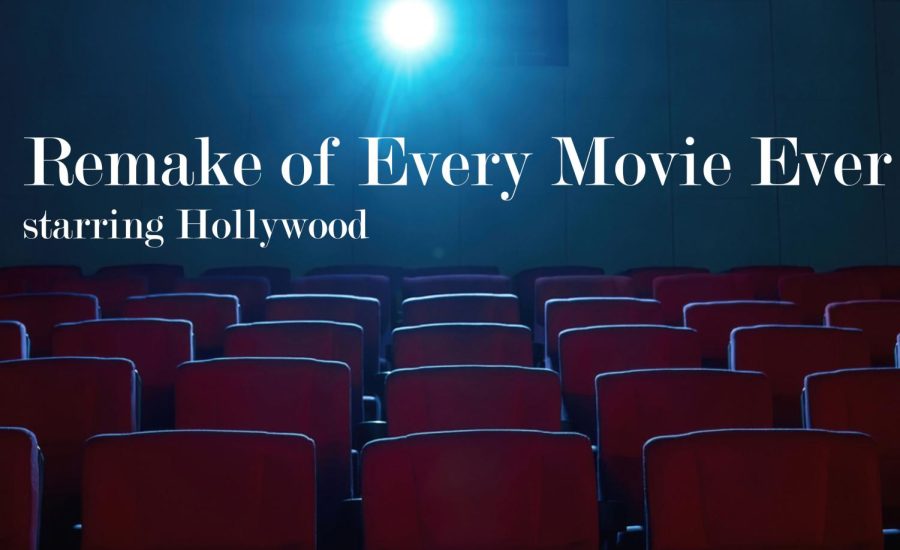Cinematic Leftovers
Movie remakes are Hollywood’s current craze. But should they be here to stay?
When Disney’s live-action version of the Lion King projected onto the big screen in 2019, fans young and old were excited to relive the classic tale. Instead, a bittersweet taste was left in their mouths as most believed it didn’t hold a candle to the emotions and seamless nature of the original. The film was deemed a critical failure following a 52% Rotten Tomatoes score compared to a 93% on its animated counterpart. So what is the deal with remakes?
Over the past few years, it’s evident how creativity and original ideas- the cornerstones of filmmaking- have often seeped through the sides in the Hollywood realm. Movies have always been an outlet to uncover otherworldly concepts and to create a cinematic experience that allows the audience to think- whether that be about a witty line or a heart numbing death. Aside from a set few, remakes typically don’t capture this moment and have thereby derived a bad connotation in modern society from the pattern. Some do-overs from 2021 alone include Cruella, West Side Story, Home Sweet Home Alone, He’s All That, and more.
Looking at this case from the film market’s perspective is understandable as they are guaranteed a stable flow of money from the one thing that the public will never let go of: the nostalgia factor. A character, a familiarity, a story that once meant something to a person will likely be there for a long time and especially jump out if they get to encounter that feeling again. Movie makers know this and usually add in big name celebrities to draw even more attention. Take the Beauty and the Beast remake for example. Disney casted beloved Harry Potter actress Emma Watson as the leading role of Belle. One reason this movie was criticized was due to its lackluster attempt at taking any creative integrity from the original.
Filmmakers currently seem to be hesitant in producing pieces that take risks and diverge from what everyone else is doing. An unexpected plot point might dissatisfy the audience; more character depth might take away the charm; experimental cinematography might distract from the message. But, these are usually the risks that add to cinema’s legacy and bring in a new viewpoint, marking a greater influence to society and pop culture.
It’s important to understand that not all remakes are bad. For example, Greta Gerwig’s adaptation of Little Women (2019) was incredibly successful because of thoughtful and intricate creative decisions that were made. The main characters of the four sisters were fleshed out well and corrected from the previous versions. Gerwig took this literary classic and adapted the feminism plotline to the progress that society has made, planting the theme in an authentic way. This movie isn’t shy in retelling the same impactful story- only with some ingenuity.
Have most good ideas already been used up, and is that the core problem? Certainly, traditional stories of love, war, and heartache have been tried and done millions of times. There is no doubt that themes and characters are going to cross over between separate films, but that cross-over should serve as a baseline inspiration to the total journey that a viewer takes upon. Consider how 2016’s La La Land took a relatively simple love story between two strangers with different dreams and turned it into a critically acclaimed project driven by its music, chemistry, colors, and motifs. As much as people love nostalgia, people also love experiencing those familiar concepts in a way that feels new and refreshing. This certainly leaves hope for future artistry; both in new movies and retellings.
At the end of the day, should pop culture completely push out remakes of its favorite films? No. Remakes have always had a time and a place, especially when the predecessor story would benefit from modern filmmaking. But right now, most of us are patiently waiting for Hollywood to open the gates to a new wave of imaginative cinema- instead of relying on the ones that have served their time.


